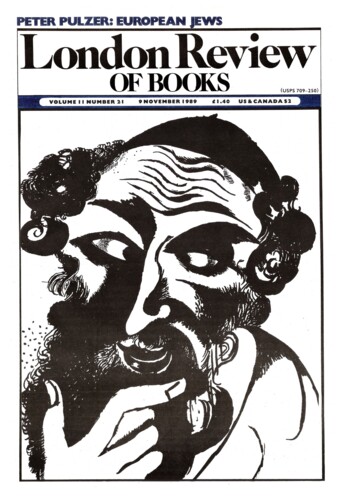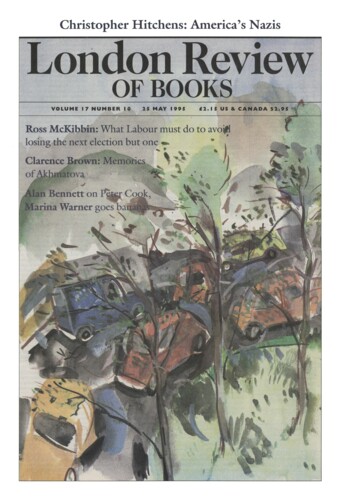A Slight Dash of the Tiresome
Brian Harrison, 9 November 1989
Intellectuals – informed people who enjoy accumulating and diffusing ideas – were more prominent in Victorian public life than they are today. Public life was then confined to a well-educated élite, and intellectual activity was less rarefied in language, less specialised in scope, more readily discussed in periodicals designed for general circulation. Politics, literature, religion, scholarship and even natural science all fertilised one another. The cultivated ‘man of letters’, broad but selective in his reading, moulded taste. Universities have subsequently hived off much intellectual activity into academic journals inaccessible to the educated public. They have converted associations such as the British Academy and the Royal Society, where the layman was once made to feel at home, into learned societies. H.A.L. Fisher threatened to resign from the British Academy in 1938 if it refused to recommend Winston Churchill for election: such a decision, he said, would ‘mark the triumph of a tendency towards minute specialisation … which I have long watched with concern, as likely to rob the Academy of its national character’.’


